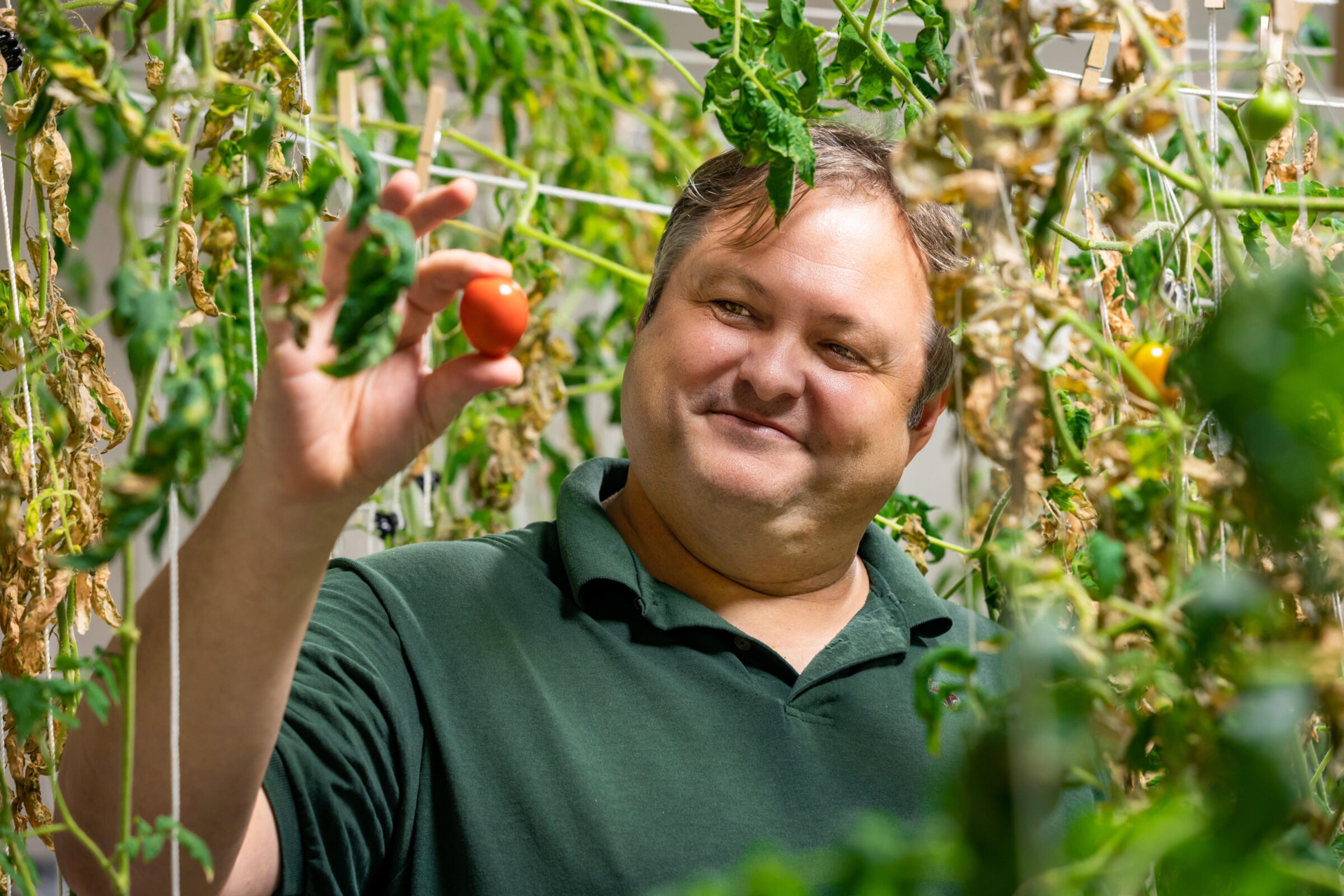Growing veggies for the Moon and Mars
STEP grants 2023 project winner
As humans venture out into deep space, they’ll need more than a diet of freeze-dried food. Fresh produce is nutritious, adds variety, and boosts crew morale. If we are going to live on the Moon and Mars for extended periods of time, we’re going to have to grow crops in space.
NASA is currently experimenting with growing plants aboard the International Space Station. Two methods for producing crops in space and on other worlds are hydroponics and using regolith, the surface dirt found on other worlds.
Both methods have challenges. Water-based hydroponics run the risk of fungal and bacterial contamination — a problem that only gets worse over time. Regolith, on the other hand, is sterile and lacks the nitrogen found in Earth dirt. Martian regolith also has high concentrations of salts.
Which technique is best for different missions and destinations? Are certain crops suited to certain methods? These are the questions that a team of scientists led by Dr. Andrew Palmer of the Florida Institute of Technology hope to find out. The Planetary Society awarded $50,000 to the project in 2023 through our STEP grants program. STEP grants are competitively awarded through an open, international process.
How it works

Dr. Palmer’s team will test three crops: radish microgreens, lettuce, and tomatoes. They will grow them using two methods: hydroponics and regolith-based substrates. The project will use simulated lunar and Martian regolith, since we don’t have the real thing available (other than the few, precious samples of lunar regolith returned by past lunar missions).
The team will study how the plants grow in each medium, in hopes of understanding each method better and comparing their suitability for long-term space travel. Their hypothesis is that faster growing crops like microgreens will be better suited for hydroponic systems even in the long term, while slower-growing crops like tomatoes may favor a regolith-based production system.
The team includes experts in plant physiology and biochemistry, as well as space agriculture and systems efficiency analysis. The project is led by Prof. Andrew Palmer of the Florida Institute of Technology, with co-investigator Prof. Rafael Loureiro from Winston-Salem University. Collaborators include Prof. J. Travis Hunsucker, Florida Institute of Technology; Dr. Laura E. Fackrell, NASA Postdoctoral Fellow, Jet Propulsion Laboratory; Dr. Thiara Bento, Florida Institute of Technology; and Jéssica Carneiro Oliveira, Universidade Federal do Estado do Rio de Janeiro, Brazil.
Reflections from the team
Dr. Andrew Palmer, principal investigator:
"The long-term viability of off-world settlements will be intimately connected to food production in a way that few members of our species can truly relate to anymore. Similarly, the opportunity to shape food production in these future settlements connects us to the next great frontier of human exploration."
Dr. Rafael Loureiro, co-investigator:
"Through the groundbreaking practice of agriculture, humanity embarked upon an extraordinary journey, unlocking the immense potential of harnessing and cultivating the Earth's natural resources. With unwavering dedication and scientific precision, we nurtured crops, igniting a transformative force that laid the groundwork for the formation and progress of human civilization.
Agriculture's profound impact on humankind continues to fascinate us as we embark on yet another exploratory journey, now outside of Earth. This project aims to understand better the directions we will take in the years to come on how we will, once again, overcome the difficulties imposed by nature and, this time, hack agriculture to make it work outside our planetary borders. Many of our discoveries will help define how we, as a spacefaring society, will sustainably use resources outside Earth for agricultural purposes. Another exciting part of this project is the transferability of many of the technologies we will create and assess for space that can be used in Earth-based systems that today face the challenges of climate change, thus, creating a perfect synergy between our past, present, and future."
Dr. Laura Fackrell, researcher:
"Agriculture and soil science have made amazing advances since the earliest efforts of early humans. However, the next decades face additional challenges on Earth, such as climate change and depleting phosphorus, which will require more sustainable innovative solutions. Growing plants on the Moon, Mars and beyond have similar challenges of strained resources and difficult environments. The innovations created for space will have very direct correlations to the same innovations needed on Earth. In such efforts, whether on Earth or beyond, we will likely see some of the most impressive agricultural innovations of our lifetimes."


 Explore Worlds
Explore Worlds Find Life
Find Life Defend Earth
Defend Earth

